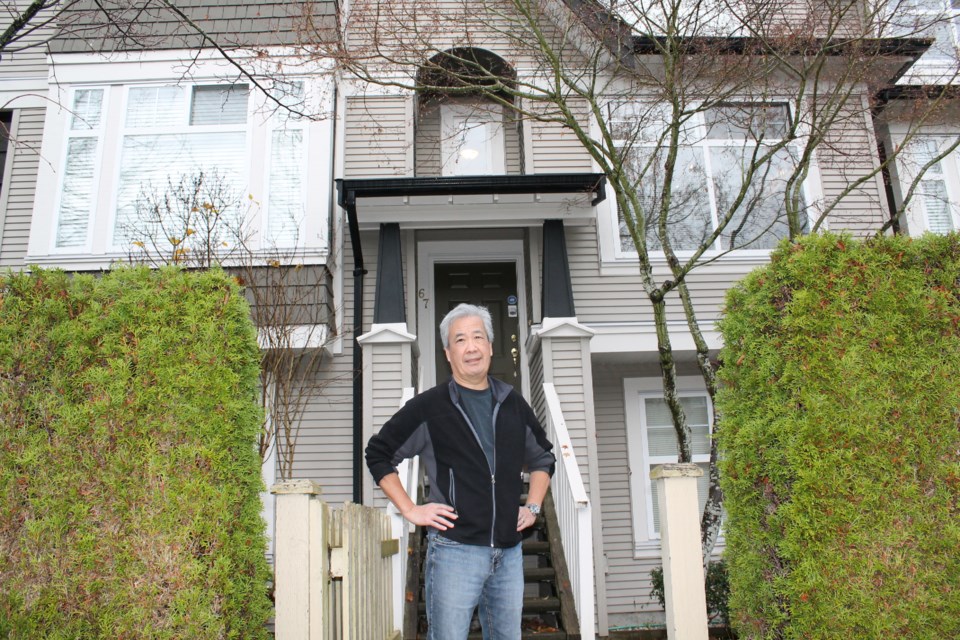A Richmond resident who has lived in his Terra Nova home for the past two decades is now facing a $30,000 bill, plus interest, under the provincial government’s speculation and vacancy tax.
It’s a tax Tony Chan doesn’t believe he should be subject to – and one which he can’t afford.
The tax breaks down to about $15,000 a year that Chan, who is 64 and mostly retired from his career in finance, is being asked to pay.
It comes down to the fact that his wife, whom he married in 2005, lives and works in the U.S., earning more than he does.
Chan said he is “being fined for being married to an American.”
His only property is his home in the northwest corner of Terra Nova, which he purchased in 2000 and where he raised both his children. The house is in his name, not his wife’s, and the two don’t have shared accounts.
“It’s preposterous to think that I would be paying tax as a speculator for living here my entire life, just because I’m married to someone outside of the country,” said Chan, noting he has also received community support since sharing his story.
Chan said he hasn’t “moved anywhere” and his home has never been rented.
“It’s never been vacant,” he said, noting that while he and his wife visit each other, it’s never for more than about three months a year, total.
He was first hit with the tax nearly two years ago, around the time when retired.
Since then, Chan, who has lived in B.C. for the vast majority of his life, has been trying to appeal the tax – without success.
“It’s daunting, you know, because you’re one person against the government – it’s difficult. I really have no choice. It’s a $30,000 bill. I just can’t pay that,” he said.
The province introduced the to combat housing speculation and vacant homes – and the affordability crisis – in major urban centres.
It’s a tax the Ministry of Finance says is working – with around 18,000 units in Metro Â鶹´«Ã½Ó³»back on the long-term rental market.
Under the tax, Chan is defined as an untaxed worldwide earner – or a member of a satellite family – because most of the household income is earned outside of Canada.
An individual’s income is combined with their spouse’s income for the purposes of the calculation, according to the ministry.
“I’ve been roped into the category of being a speculator by virtue of having a, quote-unquote, household income generated mostly outside of Canada,” Chan said.
“I’m mostly retired; my wife works. So, she’s always going to make more money than me. It’s obviously ridiculous for me to tell her, ‘Honey, please stop making money,’ or for me to separate from my wife. It doesn’t make any sense.”
When Chan first received the bill, he wrote to the Ministry of Finance explaining the circumstances, expecting it to be an oversight.
“It’s obviously clear that I’m not under the umbrella of what they consider to be a speculator. But they basically denied it and said, ‘well, that’s too bad, that’s the way it was written.’”
In a statement to the Richmond News, the ministry said it can’t reveal individual taxpayer’s information, but noted the speculation and vacancy tax is “not discretionary.”
“It applies based on a set of circumstances that are set out in the legislation,” the ministry said.
The ministry also noted that a non-refundable tax credit may be available to certain owners, including members of a satellite family, based on their reported B.C. income and whether they used the property for an “eligible use,” such as a principal residence.
Taxpayers can also appeal if they are unhappy with the assessment or believe it was incorrectly applied, but the assessment will be upheld if it is found to have been correctly issued.
Chan has appealed to the ministry a “number of times” and has also reached out to B.C.’s ombudsperson to look into his case. He may also seek out legal advice.
He said he believes it should be easy to make an exemption for people like himself, pointing out there isn’t currently a mechanism in place to address these issues on an individual basis.
“They sort of want to enforce this edict en masse without any consideration of collateral consequences of individual cases. You know, my case is pretty cut and dry – I don’t think there’s any grey area.”



